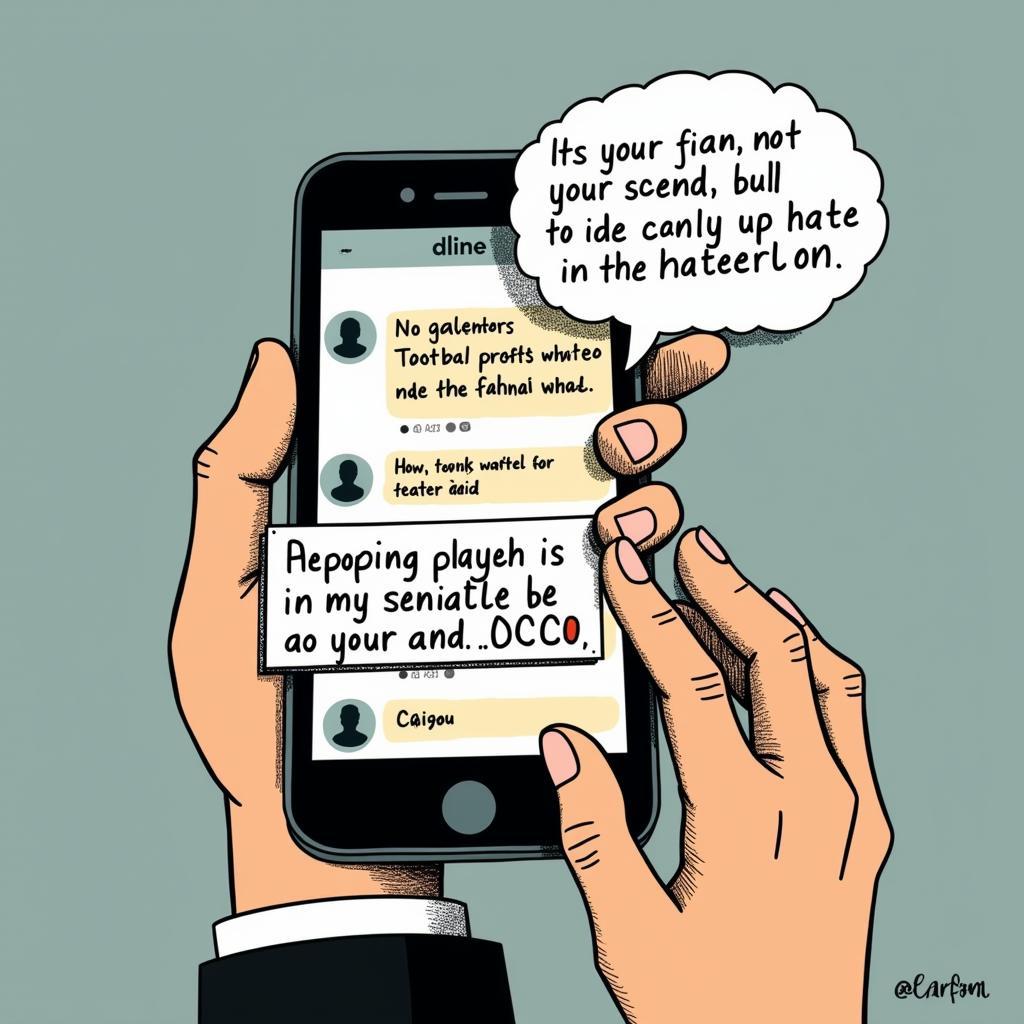The term “toxic fan” has become increasingly prevalent in the world of sports, particularly football. It describes a subset of fans who engage in aggressive, disrespectful, and often harmful behavior in the name of supporting their team. This behavior can manifest in various ways, from online harassment and cyberbullying to physical altercations and vandalism.
While the vast majority of football fans are passionate and respectful individuals, the actions of a few can cast a dark shadow over the entire sport. This article delves into the phenomenon of toxic fandom in football, examining its causes, consequences, and potential solutions.
What Makes a Fan “Toxic”?
Toxic fandom is not merely about expressing strong opinions or disagreeing with others. It crosses a line when passion morphs into aggression, and support mutates into hostility. Here are some hallmarks of toxic fan behavior:
- Cyberbullying and Harassment: Targeting players, coaches, journalists, or fellow fans with insults, threats, and personal attacks online.
- Violence and Intimidation: Engaging in physical altercations, vandalism, or threats of violence at matches or elsewhere.
- Extreme Tribalism: Viewing other teams and their fans as enemies and engaging in hateful rhetoric and discriminatory language.
- Unrealistic Expectations: Placing immense pressure on players and demanding unrealistic results, often leading to verbal abuse and online vitriol.
- Justification of Bad Behavior: Excusing or glorifying unacceptable actions by claiming loyalty, passion, or a sense of entitlement.
 Toxic Fan Online Harassment
Toxic Fan Online Harassment
The Root of the Problem: Why Do Some Fans Turn Toxic?
Understanding the motivations behind toxic fandom is crucial to addressing the issue. While each case is unique, several contributing factors can be identified:
- Sense of Entitlement and Ownership: Some fans develop an unhealthy sense of ownership over their team, believing they have the right to dictate performance and lash out when expectations aren’t met.
- Anonymity and Online Disinhibition: The internet provides a shield of anonymity, emboldening individuals to engage in behavior they wouldn’t dream of offline.
- Group Mentality and Social Contagion: Within certain online communities, toxic behavior can become normalized and even encouraged, creating a dangerous echo chamber.
- Underlying Social Issues: Frustration, anger, and lack of control in other areas of life can sometimes manifest as aggression within the context of fandom.
The Far-Reaching Consequences of Toxic Fandom
The impact of toxic fandom extends far beyond the individuals directly involved. It can:
- Damage the Reputation of the Sport: Negative headlines and viral incidents of fan misconduct tarnish the image of football and discourage newcomers.
- Impact Player Mental Health: Constant online abuse and pressure can take a severe toll on the mental health and well-being of athletes.
- Create a Hostile Environment: For genuine fans, toxic behavior can ruin the matchday experience and create a climate of fear and intimidation.
- Discourage Diversity and Inclusion: Toxic fandom often intersects with sexism, racism, and homophobia, creating an unwelcoming atmosphere for marginalized groups.
Combating Toxicity: Towards a More Inclusive and Respectful Football Culture
Addressing toxic fandom requires a multifaceted approach:
- Social Media Platforms: Implementing stricter moderation policies, promoting digital literacy, and holding users accountable for online harassment.
- Football Clubs and Organizations: Taking a strong stance against toxic behavior, implementing robust reporting mechanisms, and promoting positive fan culture initiatives.
- Fan Communities: Encouraging self-regulation, calling out unacceptable behavior, and fostering a culture of respect and inclusivity within fan groups.
It’s crucial to remember that true fans support their team with passion and respect, not through hate and aggression. By working together, we can create a footballing world where everyone feels safe, welcome, and able to enjoy the beautiful game without fear.
Do you have any questions or personal experiences with toxic fandom in football? Share your thoughts in the comments below.
For more insights on fan culture and its impact on the world of sports, check out these related articles:
Need help navigating the complexities of fandom or dealing with online harassment? Don’t hesitate to reach out. Our team is here to support you 24/7.
Contact us at:
Phone: 0903426737
Email: fansbongda@gmail.com
Address: To 9, Khu 6, Phuong Gieng Day, Thanh Pho Ha Long, Gieng Day, Ha Long, Quang Ninh, Vietnam.


